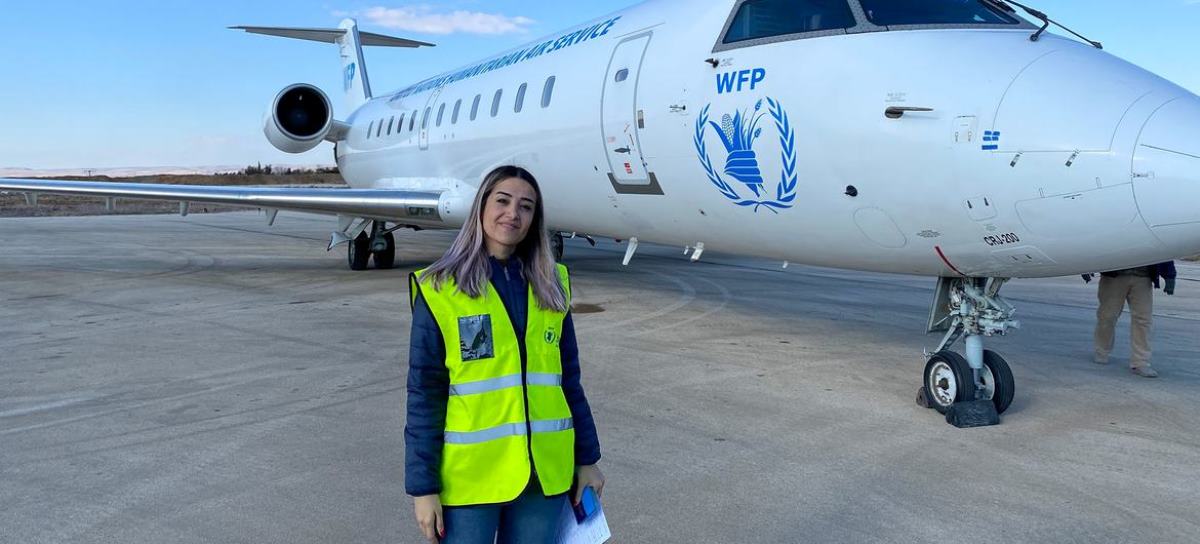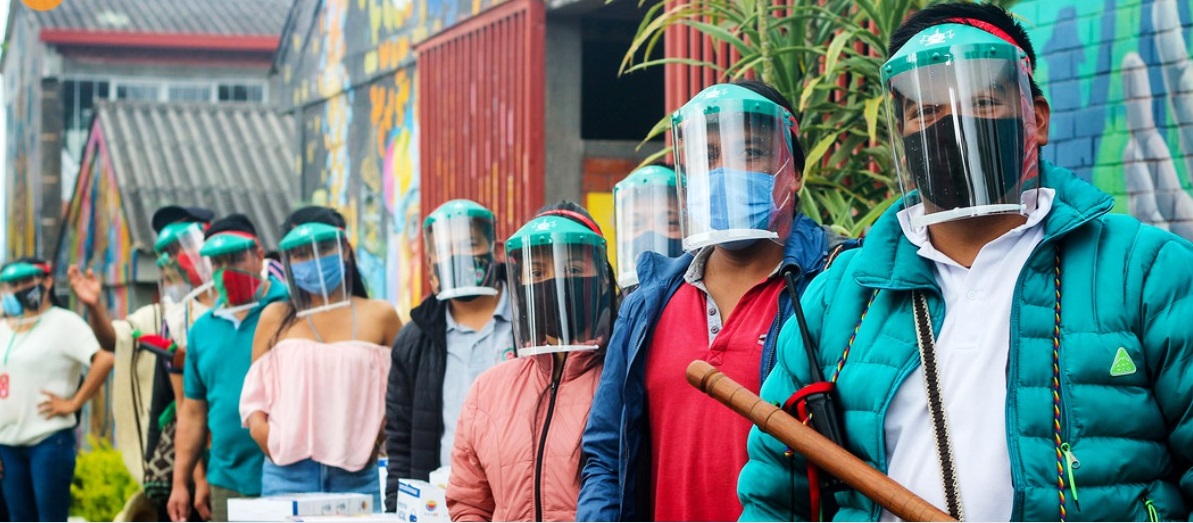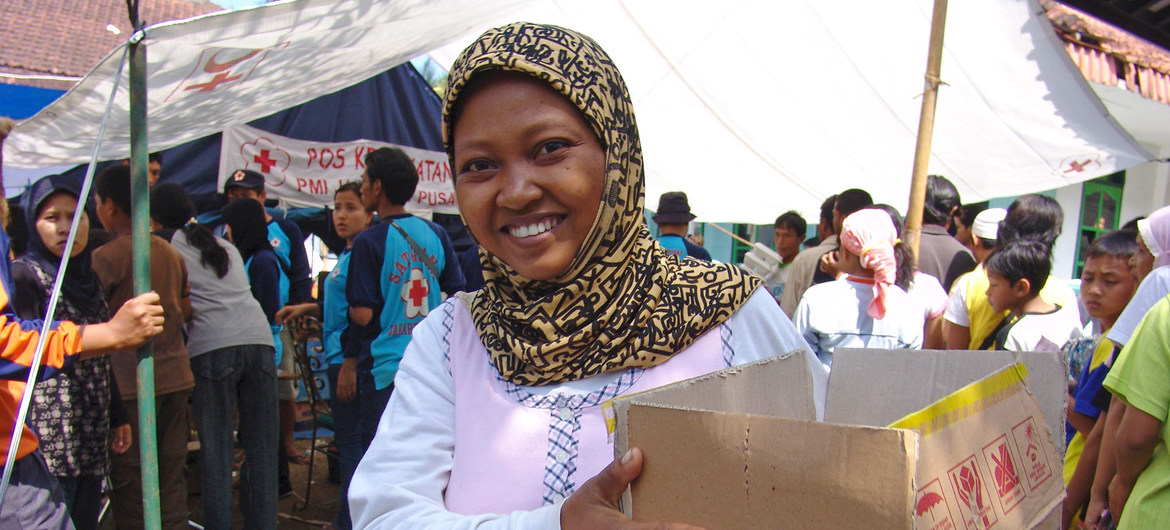“Every day is a new adventure”, as part of the UN Humanitarian Air Service (UNHAS) in Syria, according to a young staff member who helps aid workers check in, board and fly safely between the capital, Damascus, and her home city in the north, Qamishli
 KRC TIMES Desk
KRC TIMES Desk


Despite having been “around aircraft for so long” due to her personal and family history, Rasha admits that she still gets a “heart flutter” every she watches a plane take to the skies.
“It never gets ordinary being here”, she said.
Like mother, like daughter

Early last year, Rasha joined the World Food Programme’s (WFP) UNHAS team as an Aviation Assistant at Qamishli airport in Syria’s northeast. Prior to that, she’d worked in commercial aviation for seven years.
The young woman’s passion for airports goes back to her childhood days.
“My mother served at the same airport for 35 years. I vividly remember her wearing her silver uniform with a white blouse and a silky maroon scarf neatly tied around her neck”, she recalled.
But what fascinated Rasha most was her mother’s devotion.
“Qamishli is not a luxurious airport as it lacks comfort and catering facilities, so it can be rough to miss your flight and have to spend the night here. My mother assisted everyone she encountered unconditionally and to the best, she could, and I wanted to be her one day”, she said.
Safer, quicker journey
Over years of crisis in Syria, conflict lines have shifted dramatically, rendering roads linking Damascus to the two northern governorates of Qamishli and Aleppo dangerous to use.
The skies above became the most viable way for UN staff and humanitarian workers to travel between the capital and the country’s north.
And with domestic airlines further disrupted by the COVID pandemic, the 2020 launch of UNHAS in Syria has provided a crucial connection between staff and the people it serves – turning a gruelling 16-hour drive into a one-hour flight.
“If it wasn’t for UNHAS, humanitarian staff would have faced many challenges in accessing families in need”, Rasha said.
Today, UNHAS in Syria serves 39 different humanitarian organizations, not just UN agencies.
Even with COVID-19 precautions strictly followed, the airline service transports an average of 350 passengers on its flights between Damascus, Aleppo and Qamishli.
Humanitarian needs across Syria reached unprecedented levels last year making it more important than ever for staff to rapidly and safely reach those in urgent need of assistance.

Rasha works closely with colleagues visiting from Damascus.
WFP/Manal AlkalajiRasha works closely with colleagues visiting from Damascus.
‘Humanitarian core’
At first, Rasha was most impressed by the airline’s high standards, discipline and punctuality, but then she found a deeper meaning to it.
“One day, my passengers were all onboard for a flight to Damascus and we were about to close the gate when a man from another humanitarian organisation rushed in with his daughter who was in need of urgent medical evacuation to Damascus”, she recounted.
When Rasha contacted UNHAS management, she was immediately advised to delay the flight until the man had finalized his necessary documents.
“My supervisor told me: ‘Our existence is to serve these people, so our gates can’t be shut before them.’ That was the moment when I realized the humanitarian core of my work and it deeply moved me”, said the staff member.
United in delivering
In addition to people, UNHAS also flies lifesaving medical assistance.
In 2021 the airline transported critical medical equipment, including COVID-19 vaccines and mobility aids for people with disabilities.
“It was thanks to UNHAS that UN staff in Qamishli and their dependents were vaccinated, as the vaccines and specialized medical staff had to be transported all the way from Damascus”, Rasha said proudly.
With the onset of winter, she knows that her job will be more challenging for months to come but recognizes the impact of her work each day as colleagues and families are now closer together than ever before.
Advertisements | 5E For Success

KRC Membership is the first step towards an evolved career-building support system powered by KRC Foundation.
Ideal for students and job seekers.
Mail resume to- 5eforsuccess@gmail.com WhatsApp: 9531090090





